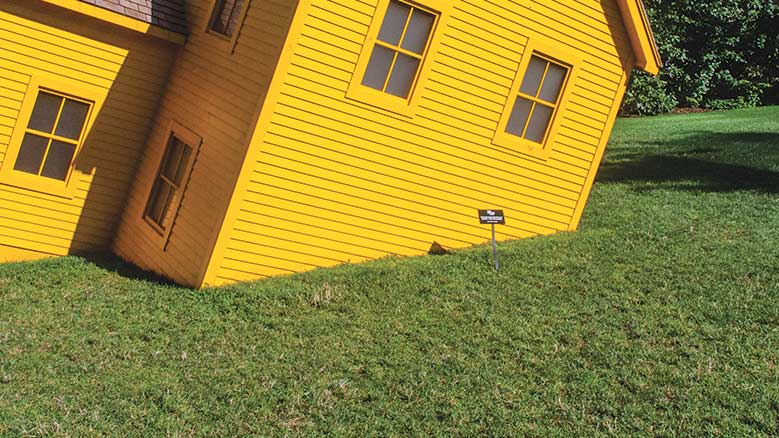In my youth I was a comic book geek. Occasionally one might hear me cheekily go off about their ability to save the human soul, but the truth is that oftentimes comics became a shelter for me. The superhuman awkwardness of so many of the characters saved my adolescent life on several occasions, especially the summer when I was afraid to go outside because the boy two houses down wanted to connect his fist with my jaw just because I was a quiet pacifist. I can laugh at that story now, but at the time comic books were my sanctuary and my refuge. Luckily for me they weren’t the only refuge.
When I would leave my house I would walk down the street often feeling like a stranger in a strange land. I remember looking on with horror one day when two boys, both of them friends, got into a fistfight, and one of their dads came out to cheer his son on. After his son lost the fight his dad took off his belt and beat him for losing, while all the other children stood around and laughed. My own household was heaven in comparison. For my parents, violence was never an option, which was fine with me because, still to this day, the thought of causing physical or emotional harm to another being makes me feel nauseous. So I had to find interesting ways to keep my body and mind safe without hurting others, but sometimes, walking through this world, situations arise that make me feel crazy for not retaliating with violence.
That is why Quaker meetinghouses have been so important to me. I am peace to my core. But I do not fear confrontation; rather, I fear the harm that every single one of us is capable of, especially myself. Even in the Friends school that I attended in middle school there was a pecking order—peck or be pecked. More than once I pecked, and I regret that now as I regretted it then. I don’t have any regrets from my experiences in the Quaker meetinghouse. I never once feared for my safety, and I was never placed in a position where I would have to commit violence in order to be heard, seen, or valued.
Everyone should have a place to go to for sanctuary. But there are too many who have never known peace, and they are all around us—from the face that looks up at us from the sidewalk beneath a blanket of newspapers, to the screaming child being dragged across the grocery store floor by the elbow. If you’ve ever worked in a group home, shelter, or prison, then you know that there are people who have never felt safe in their entire lives. I’ve worked in a home for emotionally traumatized six- to nine-year-olds and read files of their experiences that seem irreparable. Unfortunately, so many of our systems seem to re-traumatize these people, and so I wonder: will they ever have the peace that I have known and seen on a First Day?
I don’t know the answer—in fact, I don’t believe there is a definitive answer to that question—but I do know that there is a peace and a sanctuary within the walls of Quaker meetinghouses. I may not agree with every message in a meeting for worship, and I don’t have to like every single individual there, but I never felt any physical harm would come to my person within its walls. Sometimes I don’t think we Quakers realize how great a gift that is in today’s world. I had a conversation with someone the other day who said that we are all here to share the gifts we have, and that the only sin is to withhold a gift. What a gift our places of peace are.
I’ve been reading Jim Corbett recently, and so a lot of what I am writing about is influenced by his words. I recently went to the El Paso/Ciudad Juarez border where, as a seminary student, I was asked to think theologically about almost all of my experiences. Jim Corbett, a Quaker who was seminal in instituting the Sanctuary Movement in the 1980s for refugees of Central and South American wars, asked a question of the Quaker meeting that I am continuously struggling with: "Has meeting for worship simply become a time for us to experience our own version of some postmodern personal salvation, or is it a springboard toward the creation of a just and sustainable world?"
For me, this kind of world has roots stemming from the portrayal of the Peaceable Kingdom by Elias Hicks that I have seen all my life and find myself contemplating increasingly the older I get. I know what my "Peaceable Kin-dom" looked like; it was those comic books that painted my inner sanctuary, and the meetinghouse where I didn’t have to participate in harm. I continually wonder what others do for peace and sanctuary; what does the Peaceable Kingdom look like for them?
On the border, I witnessed a people with peaceful challenges I could never have imagined in my youth. The North American Free Trade Association—NAFTA—has created a cycle of debt and fuels a cycle of violence with the strength of a hurricane. Local farmers in Mexico have to sell their land for scraps to multinational corporations who decimate the economy, community, and workforce. Refugees of wars and famine traverse countries filled with militia-like gangs to cross the barren deserts of northwest Mexico, often without food or water, and sometimes at costs that even I could not afford. Then they must break through the border territories, where hundreds of thousands have died against these fences we have built to keep the poor out and the rich in, where Minutemen and local xenophobes lurk with gun in hand, where the Border Patrol waits with handcuffs, ready to toss them out the door, with no thought to whether they live or die. But if they manage to get across, the country that waits for them rarely extends a hand but to slap them back to the ground. Where is the Peaceable Kin-dom for them?
I saw the Peaceable Kin-dom in El Paso at the Annunciation House and Casa Vides. They have sheltered 90,000 migrants in 30-some years of existence. The first things arrivers are asked are, "Are you hungry?" and "Do you need a change of clothes?" Then they are asked what their plans are, and their need is assessed from there. I also saw the Peaceable Kin-dom at the Sin Fronteras Organizing Project that provides shelter for those who grow the food we eat, and build and upkeep the environments we live in for unlivable wages. These are the people who must live in shelters or sleep on the streets because none of our social services will support their existence, while all of our economy benefits from it. I saw it in Obreras Mujeres, a nonprofit that gives job training to women, begun by factory workers fired from their positions at Levis after NAFTA gave the corporation the green light to exploit workers in Mexico for less pay.
It was at this non-profit where I witnessed the childlike face of Christ.
One of the first projects of Obreras Mujeres was ethical childcare. For the many women for whom it provides training and employment, there was an onsite daycare center. It was one of the first places that we observed on my visit. I had barely stepped into the door when a toddler, sitting at a table, stood up and shook a finger of my hand. He then proceeded to shake the finger of every individual that walked in the door. After he made sure to greet everyone and took his seat back at his art project, we stood around in awe at his hospitality. As if he were receiving instructions straight from the Loving Spirit, he got back up from his chair again and proceeded to hug every individual in our group. "And a little child will lead them," I reflected. If we are to follow a child, where might it lead us, and are we ready to go there?
I have both silently and loudly proclaimed views on Quaker hospitality, but I have found a great deal of covert and overt resistance to them. One of the most significant things I found in this child was that there was absolutely no one excluded from the gift of love that he had to offer. I still feel the power of this child months later, and I expect it to stay with me throughout my life. And now that I have told this story over and over again, it has begun to touch the lives of multiple people and may continue to grow—all from shaking the hand and receiving the hug of a child. How much more can an act of an entire community, with resources as rich as the material and historical privileges that have been afforded to us, affect our local and global communities? Put another way, in considerations of gifts and sanctuary, couldn’t it be perceived as a monumental sin to not offer our meetinghouses of peace and safety to those in need?
You see, what I am suggesting is not whether or not there is a thing called sin that we must redeem ourselves from, but whether or not Quaker meetinghouses are going to be places of shelter for those who have none. I am not just proposing that the vast amount of financial and spatial resources of Quakers be used for the sanctuary of refugees of war, but that meetinghouses also be offered as places for those who are homeless and those who never experience a day without violence. But how will people ever know that there exists a place like this if they are never told about it? Here seems to be one of the biggest snags I have come across. I was raised an unprogrammed Friend, and there is a great deal of humble pride in not being evangelical, as if it were unquakerly to invite a stranger to meeting for worship. Maybe I am reading the journals of early Friends incorrectly, but it seems to me that they seemed to like to talk about the Gospel of Peace and bring people to the Light frequently.
I am grateful that we have so little hierarchy in Quakerism. It means that not only are you not coerced to do what leaders say, you aren’t even required to agree with them. I wouldn’t want to tell people what to do anyway. But I do hope we can recognize a little bit better this gift we have been given and look at answering some of these questions together. Sometimes in conversations with other Quakers about how we can be more welcoming, I think about our gifts as Quakers and realize that they are no different than any other gifts that an individual might have. Expecting people to just show up at our door is kind of like being a gifted poet but never telling anyone, yet being surprised when our expectations that people will ask us to share our work with them are unmet. If we want communities that are welcoming, more multicultural, and more just, we have to invite people. Not inviting people to meeting holds significant ethical problems for me.
And so I’ll end with a few more questions. Do you find value and meaning within the walls of a Quaker meetinghouse? If not, then why do you continue to attend? And if you do, then why not invite others, in varying degrees of need, to experience that wonder and that peace with us?



